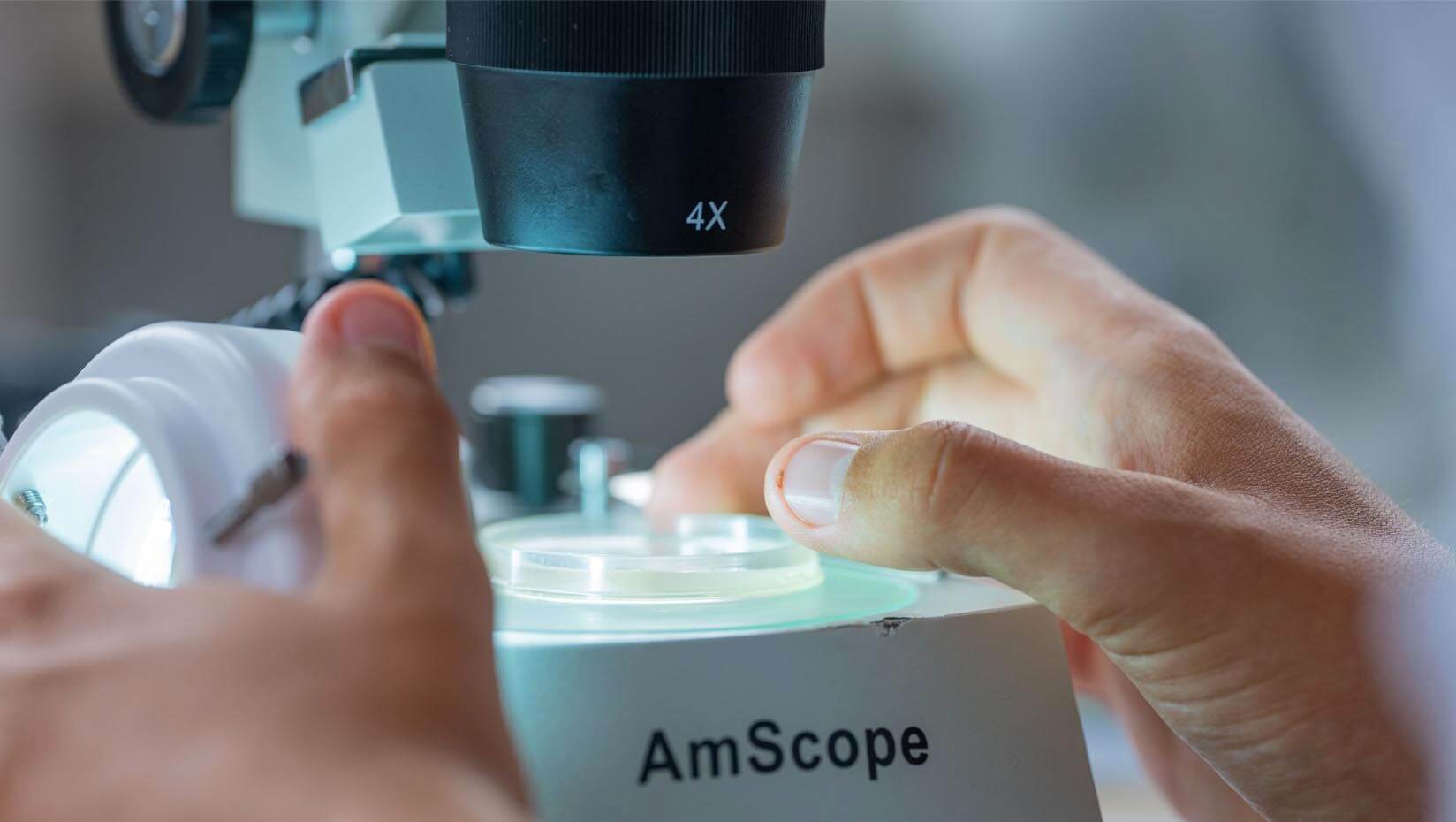
Innovative medical research underway through UMaine, USM partnership
New technology to study cancer, unique materials for medical devices and diseases transmitted by mosquitoes are among the areas of research being conducted through a new partnership between the University of Maine and University of Southern Maine.
Led by UMaine’s Institute of Medicine, the pilot program provides fellowships to USM faculty to conduct research through partnerships with UMaine researchers. The program capitalizes on UMaine’s long-standing, top tier research enterprise and USM’s proximity to prospective industry partners in Portland. It offers professional development opportunities for USM faculty, the knowledge and skills from which should help them gain grant funding for future projects and build a stronger research partnership between the universities.
“I applaud the Institute of Medicine for establishing more pathways for faculty at UMaine and across Maine’s public universities to collaborate on meaningful medical research with global impact and local relevance,” said UMaine President Joan Ferrini-Mundy. “By leveraging the diverse talent from both UMaine and USM, I’m confident the research generated from this partnership will improve the health and well-being of Mainers and fuel growth within our medical and life science industries.”
Participants in the inaugural program from USM have also become affiliate faculty with UMaine’s Institute of Medicine. They include Catherine Miller, assistant professor of biological sciences; Amir Kordijazi, assistant professor of industrial engineering; and Asheesh Lanba, assistant professor of mechanical engineering. Each of the three participants will have a primary mentor and additional faculty support from UMaine.
In collaboration with a UMaine associate professor of arthropod vector biology, Allison Gardner, Miller will study infections transmitted by insects with a primary focus on mosquito-transmitted diseases, such as West Nile fever. She will also work with James Dill and Thomas Rounsville Jr. from University of Maine Cooperative Extension, who focus on tick-borne diseases.
Alongside his primary mentor Thomas Schwartz, a UMaine associate professor of chemical engineering, Kordijazi will investigate the efficacy of using optical imaging devices to identify chemical interactions in disease states, such as cancer. They will collaborate on the project with UMaine engineering faculty Karissa Tilbury, Caitlin Howell and David Neivandt.
With guidance from Habib Dagher, director of UMaine’s Advanced Structures and Composites Center (ASCC), Lanba will devise new composite materials for developing medical devices and implants. ASCC researchers Andrew Gifford, Emily Stauffer and Jared Palmer will also participate in the project.
“It is exciting to see the research collaborations among some of our most talented faculty at USM and UMaine,” said USM President Jacqueline Edmondson. “Their collective expertise will contribute to new knowledge and scientific advances as we work together to solve complex health and medical problems.”
Contact: Marcus Wolf, 207.581.3721; marcus.wolf@maine.edu
